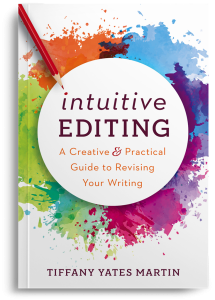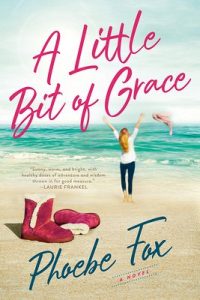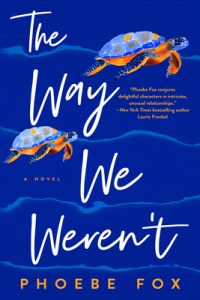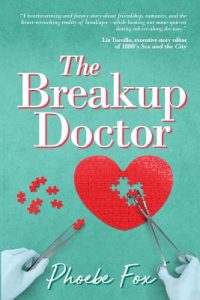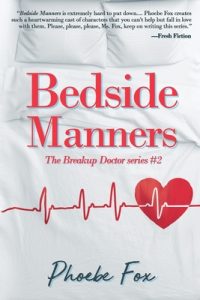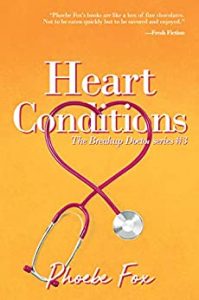Character is the Foundation of Story: An Interview with Tiffany Yates Martin
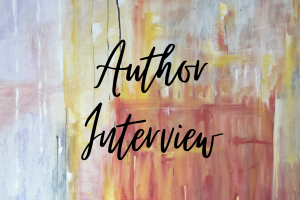 When Tiffany Yates Martin agreed to answer questions for this series, I literally did a happy dance, right there, in front of my computer (though no one was around to witness it). I’d been running into her name for years through the Women’s Fiction Writers Association, and many of the books I read thanked her and her expertise in the Acknowledgments section. Then, I checked out her website (where she offers so much information, it’s unreal), attended a few of her webinars, and followed her on social media. In 2020, her editing gem, Intuitive Editing, was published, and suddenly, Tiffany was elevated to first-class status in my mind, which means I wrote a blog post that featured her (and two others I’d like to emulate when I grow up!). Fangirl? Why yes, I am, and there’s nothing wrong with that now, is there?
When Tiffany Yates Martin agreed to answer questions for this series, I literally did a happy dance, right there, in front of my computer (though no one was around to witness it). I’d been running into her name for years through the Women’s Fiction Writers Association, and many of the books I read thanked her and her expertise in the Acknowledgments section. Then, I checked out her website (where she offers so much information, it’s unreal), attended a few of her webinars, and followed her on social media. In 2020, her editing gem, Intuitive Editing, was published, and suddenly, Tiffany was elevated to first-class status in my mind, which means I wrote a blog post that featured her (and two others I’d like to emulate when I grow up!). Fangirl? Why yes, I am, and there’s nothing wrong with that now, is there?
Of course, I’m probably not the only fangirl out there, as her editing experience is second to none. Case, er cases, in point? People she’s worked with. Author Veena Rao said, “I am indebted to . . . Tiffany Yates Martin, who saw potential for a resonant work of art when it was rough marble, and whose invaluable feedback helped me sculpt this novel into shape,” while Lainey Cameron, author and co-host of The Best of Women’s Fiction podcast wrote, “A friend told me that working with Tiffany would be like taking a mini MFA, and they were right.” And Tiffany’s strengths don’t just lie in editing. Yes, this powerhouse publishes essays and articles as well as fiction, where she publishes under the name Phoebe Fox. One Goodreads reviewer wrote of her latest novel, The Way We Weren’t, “This story is funny and heartwarming, and sad and emotional. It’s the kind of story I didn’t want to end, and yet I couldn’t stop plowing through it because it was THAT GOOD.” Nothing more needs to be said here, really, other than a huge thank you to Tiffany. I’m eternally grateful to her for making room in her schedule for my questions and for her very thoughtful answers.
Christina: You’ve been an editor in some capacity since the early nineties, and you started in New York (which many consider to be the mecca for the publishing industry). Can you give our readers a quick rundown on why you chose New York and how you got started?
Tiffany: I didn’t actually move to NYC to become an editor—I was an actor. Editing began as a way for me to create a more sustainable long-term career for myself to support my acting than waiting tables, which I’d been doing for a while at that point. I had been a writer, editor of my school paper, and an English major, and language was always a strength, so when I saw an ad in the NY Times for a pamphlet called “Get Paid for Reading Books!” I sent my $25 (a fortune for a starving artist at the time) with minimal expectations but high hopes.
It actually had a ton of very useful info about getting started as a freelance proofreader and copyeditor, so I bought the industry-standard reference books, studied The Chicago Manual of Style, and contacted a handful of major publishers for their copyediting tests. Once I started working for a couple publishers, word spread (it’s a small industry), and before long I was working for most of the Big Six (back then).
I was a copyeditor for about fifteen years—in a time before electronic editing, meaning I got to see every single editorial change made in the books I worked on, a fantastic virtual internship of sorts—before moving into developmental editing around 2008.
Christina: Early on, did you ever doubt yourself as an editor?
Tiffany: Sometimes I still do. 😊 As with acting or any other subjective art, I always think that if you don’t approach the work with at least a little bit of humility about your abilities, you won’t be as effective.
I’ve been very lucky to have learned from some of the best in the business and have the benefit of their rich experience and knowledge.
Christina: Past roles of yours include actor as well as relationship columnist, among others. Do those past roles inform your editing process?
Tiffany: I’m often amazed at just how much they do, yes. Acting is based so much on character, and I consider myself a “character editor”—meaning that to me character is the foundation of story. The relationship column let me dig deeper into the dynamics and psychology of human interactions, another benefit for what I do. And I also worked for many years as an entertainment columnist and reviewer for regional publications—more fertile training ground for analyzing a work and pinpointing what is working well in a work of art and what could be more effective.
Christina: Piggybacking on the previous question, what’s your editing process like (in brief)? Do you approach different genres differently? Do you have a favorite genre to edit?
Tiffany: I love that you ask about genre—not every editor is equally adept at every genre (and if they say they are, I recommend looking for another editor). I work most often in book-club/upmarket fiction; suspense/thriller; mystery; and some narrative nonfiction.
In every genre, I generally edit similarly to the method I advocate in my book Intuitive Editing for authors to edit their own work: I start with a cold read of a story, always—basically reading it like a novel, not taking notes, just absorbing the story and getting my feet planted in it. Then I use my version of Sol Stein’s “triage” technique (from his wonderful Stein on Writing): I focus on the foundation of the story first—character, stakes, and plot—and make suggestions anywhere these key elements feel as if they could use development, strengthening, or clarification. Then I look at the supporting elements, like momentum and pace, suspense and tension, point of view, immediacy and impact, voice, etc. Finally I examine the prose itself: is it as efficient, effective, clear, and impactful as possible?
I liken this process to a sculptor perfecting a statue: You start by making sure all the main features are chiseled out clearly; then you progressively fine-tune until it’s as close to the creator’s vision as possible.
Christina: As you say on your website, “Writing is revising. Editing and revision are the real work of writing—and often where the story is fully found and developed and the magic happens.” But revising can be scary for some people, even well-seasoned writers. Do you have any tips to make that first step less scary?
Tiffany: You have suggested one excellent way—just look down and take one step at a time, rather than staring up at the peak of Revision Mountain. You have to keep from feeling overwhelmed, and you do that by simply tackling one issue at a time, like shoring up a wobbly building strut by strut by strut.
It’s also helpful to simply remember that revision is an entirely normal part of the process—the main part, actually: not just for newer writers, but pretty much every writer I have worked with. Even before our work together, most authors have revised extensively—great stories aren’t the product of an inspired vomiting up of brilliance, but rather hard, head-down honing, polishing, refining, developing, rewriting. And even after that we will often do multiple intensive editing and revision passes together.
This is how the process works. Not only are you in excellent company in revising, with the greatest writers in history, but remember that it affords you the opportunity to fine-tune your work until it’s as close to the vision in your head as you can make it—and that should take a lot of the pressure off throughout. No one ever needs to see a story until you’re happy with it. (“Happy” being a relative term, as another fairly universal writerly affliction is always wanting to tweak juuuuust a little more. But authors grow as writers by learning how to revise, let it go, and move on to the next story.)
Christina: Your alter ego is Phoebe Fox, a successful writer with multiple books to her name. Do editing and writing fill different needs for you?
Tiffany: She has six novels to her name! 😊 Yes, these two pursuits fulfill very different urges for me. But while I enjoy writing very much and always have, editing is the art form nearest to my heart—I am an editor to my bones. The challenge and excitement of diving into someone’s story and seeing the threads, the patterns, the intentions, then helping them get onto the page as closely and effectively as possible the vision in their heads…honestly, I love it every time.
The writing I enjoy most these days is nonfiction—writing about craft, as in my book Intuitive Editing and the follow-ups I’m working on, my blog, articles for writers’ outlets, and writing-course creation. I relish that—it keeps my brain awake and energized and lets me dive deeply into concepts of story that endlessly fascinate me, looking for new puzzle pieces to fit together, ways to demystify what can often feel opaque and esoteric.
Christina: I’m curious about your take here: What does literary success mean to you in terms of the writers you help? And what about with respect to your own writing?
Tiffany: I think this is my favorite question of all of these, Christina. It’s such a good one—and a crucial one for every author to consider.
This is a hard, hard career, and one with endless ups and downs, many of which are not in the artist’s control. If we want to stay in it for the long haul, doing what we love, we have to figure out what drives us internally, rather than externally, and let that be what motivates us, what defines our “success.” In other words, how the act of writing affects us, the fulfillment we gain from it and sharing our stories, rather than reviews, awards, contracts, money—most of which will be less than we hope for. Did I write a good story? Did it express my intentions and my vision? Did I enjoy doing so? Am I proud of the result? Does sharing that with other humans—in any scope, no matter how small—feel rewarding, connect me to other people?
That applies to my editing too—with the added reward of feeling as if I’m helping artists bring their most cherished and passionate creations to fruition. I think art—and story—is one of the most important things in life, in society, in our culture, and to be a handmaiden to creators lets me help get lots of stories into the world, not just my own.
Christina: Honestly, everything you accomplish is awe inspiring, and I’m wondering if you’re superhuman. 🙂 How do you manage to teach, speak, edit, write, work out, craft a newsletter, and more? Is there anything that routinely falls to the back burner?
Tiffany: You are being very kind. Two words: No kids. 😊
Christina: Pets are always fun to talk about in these interviews. How are your dogs, Alex and Gavin, doing? Can you tell us a little bit about them? Any other pets in the family? What’s one lesson you’ve learned from them?
Tiffany: Ha! Thanks for asking about the furry family members. They are wonderful and maddening, and I adore them almost 100 percent of the time. Alex is a 100-pound Great Pyrenees, and Gavin is an 80-pound shepherd mix (mixed with Night Fury, I think). They vex me and delight me and demand patience I didn’t know I had, and make me laugh every day, and they are little fonts of unconditional love we rarely get from any other beings in our lives. They teach me about that—and about living in the moment and simply accepting what is.
Christina: A good number of my interviewees are Texans, either born and raised or transplanted, including you. What do you think it is about the state, aside from its sheer size, that allows for creativity? Is there something the rest of the states should be doing that they aren’t?
Tiffany: Here’s what I knew about Texas before I moved here: Whenever you met someone from Texas, within the first five minutes they would tell you that with a fierce and very vocal pride. It made me roll my eyes, honestly—and moving here I saw it in spades: Texans are PROUD of Texas.
And yet as the years have passed (I’ve been here since 2007), I find myself feeling that same pride in my lovely town of Austin so very often. Like the natives, I’ve come to think Austin is one of the nicest places to live and feel deeply attached to it. Texas as a state gets a bit caught up in its own mythology—so much of which is exactly that, rather than facts. But Texans are lovely folks.
Thanks for these fun questions, Christina, and for inviting me onto your blog—it’s been such a pleasure!
Tiffany can be found in multiple places!
Website: https://foxprinteditorial.com/
Instagram: @tiffanyyatesmartin
Facebook: @tiffanynyates
Twitter: @FoxPrintEd
And as Phoebe Fox . . .
Website: https://phoebefoxauthor.com/
Instagram: @phoebefoxauthor
Facebook: @PhoebeFoxAuthor
Twitter:@PhoebeFoxAuthor
Thanks to Tiffany for agreeing to this interview! If you know of an artist, author, or podcaster who’d like to be featured in an interview (or you are an author who would like to be featured), feel free to leave a comment or email me via my contact page.


